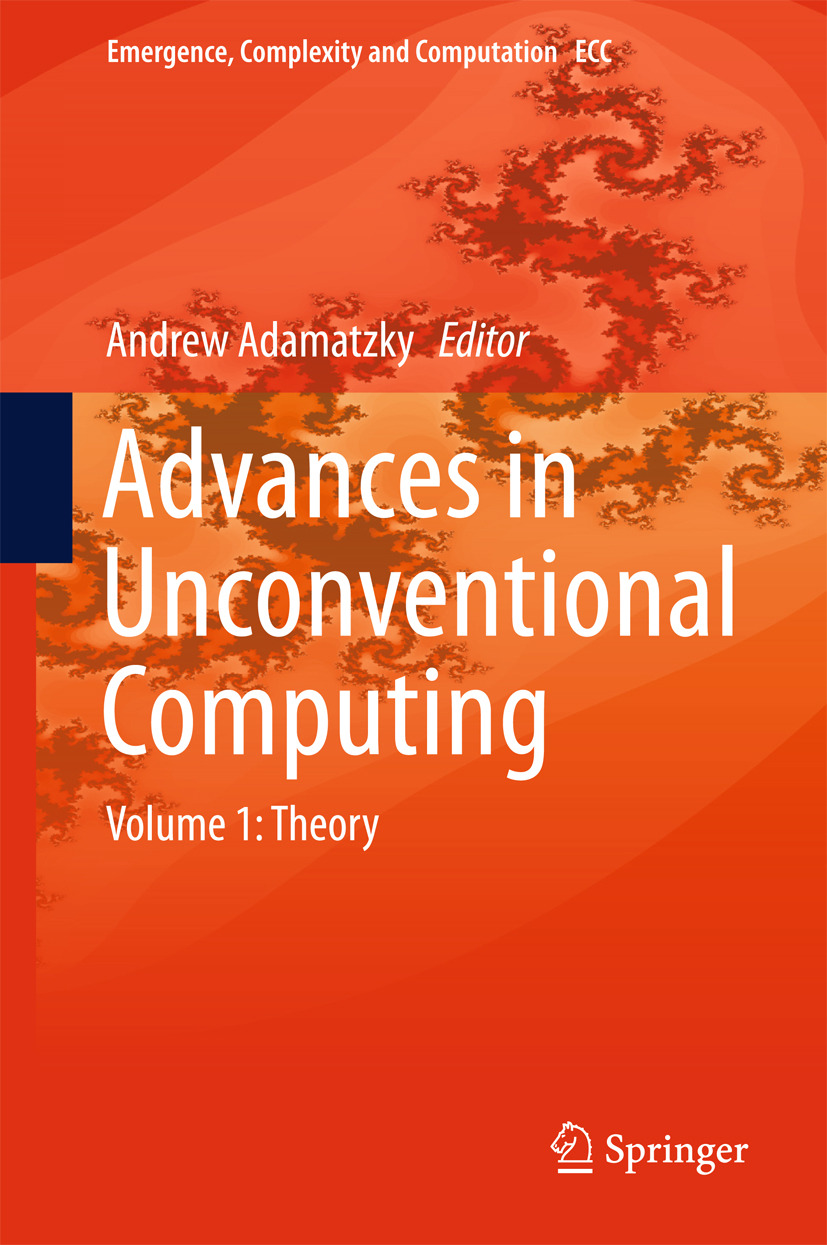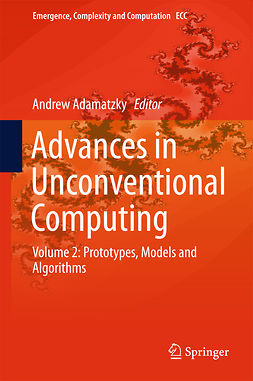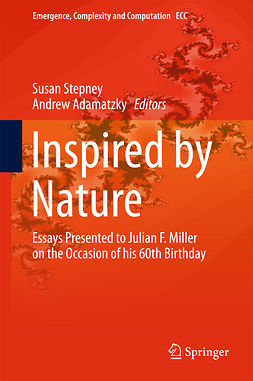Adamatzky, Andrew
Advances in Unconventional Computing
1. Nonuniversality in Computation: Fifteen Misconceptions Rectified
Selim G. Akl
2. What Is Computable? What Is Feasibly Computable? A Physicist’s Viewpoint
Vladik Kreinovich, Olga Kosheleva
3. The Ideal Energy of Classical Lattice Dynamics
Norman Margolus
4. An Analogue-Digital Model of Computation: Turing Machines with Physical Oracles
Tânia Ambaram, Edwin Beggs, José Félix Costa, Diogo Poças, John V. Tucker
5. Physical and Formal Aspects of Computation: Exploiting Physics for Computation and Exploiting Computation for Physical Purposes
Bruce J. MacLennan
6. Computing in Perfect Euclidean Frameworks
Jérôme Durand-Lose
7. Unconventional Computers andUnconventional Complexity Measures
Ed Blakey
8. Decreasing Complexity in Inductive Computations
Mark Burgin
9. Asymptotic Intrinsic Universality and Natural Reprogrammability by Behavioural Emulation
Hector Zenil, Jürgen Riedel
10. Two Small Universal Reversible Turing Machines
Kenichi Morita
11. Percolation Transition and Related Phenomena in Terms of Grossone Infinity Computations
Dmitry I. Iudin, Yaroslav D. Sergeyev
12. Spacetime Computing: Towards Algorithmic Causal Sets with Special-Relativistic Properties
Tommaso Bolognesi
13. Interaction-Based Programming in
Antoine Spicher, Jean-Louis Giavitto
14. Cellular Automata in Hyperbolic Spaces
Maurice Margenstern
15. A Computation in a Cellular Automaton Collider Rule 110
Genaro J. Martínez, Andrew Adamatzky, Harold V. McIntosh
16. Quantum Queries Associated with Equi-partitioning of States and Multipartite Relational Encoding Across Space-Time
Karl Svozil
17. Solving the Broadcast Time Problem Using a D-wave Quantum Computer
Cristian S. Calude, Michael J. Dinneen
18. The Group Zoo of Classical Reversible Computing and Quantum Computing
Alexis Vos, Stijn Baerdemacker
19. Fault Models in Reversible and Quantum Circuits
Martin Lukac, Michitaka Kameyama, Marek Perkowski, Pawel Kerntopf, Claudio Moraga
20. A Class of Non-optimum-time FSSP Algorithms
Hiroshi Umeo
21. Universality of Asynchronous Circuits Composed of Locally Reversible Elements
Jia Lee
22. Reservoir Computing as a Model for
Matthew Dale, Julian F. Miller, Susan Stepney
23. On Reservoir Computing: From Mathematical Foundations to Unconventional Applications
Zoran Konkoli
24. Computational Properties of Cell Regulatory Pathways Through Petri Nets
Paolo Dini
25. Kernel P Systems and Stochastic P Systems for Modelling and Formal Verification of Genetic Logic Gates
Marian Gheorghe, Savas Konur, Florentin Ipate
26. On Improving the Expressive Power of Chemical Computation
Erik Bergh, Zoran Konkoli
27. Conventional and Unconventional Approaches to Swarm Logic
Andrew Schumann
28. On the Inverse Pattern Recognition Problem in the Context of the Time-Series Data Processing with Memristor Networks
Christopher Bennett, Aldo Jesorka, Göran Wendin, Zoran Konkoli
29. Self-Awareness in Digital Systems: Augmenting Self-Modification with Introspection to Create Adaptive, Responsive Circuitry
Nicholas J. Macias, Lisa J. K. Durbeck
30. Looking for Computers in the Biological Cell. After Twenty Years
Gheorghe Păun
31. Unconventional Computing: A Brief Subjective History
Cristian S. Calude
Keywords: Engineering, Computational Intelligence, Complexity, Artificial Intelligence (incl. Robotics)
- Editor
- Adamatzky, Andrew
- Publisher
- Springer
- Publication year
- 2017
- Language
- en
- Edition
- 1
- Series
- Emergence, Complexity and Computation
- Page amount
- 9 pages
- Category
- Technology, Energy, Traffic
- Format
- Ebook
- eISBN (PDF)
- 9783319339245
- Printed ISBN
- 978-3-319-33923-8











